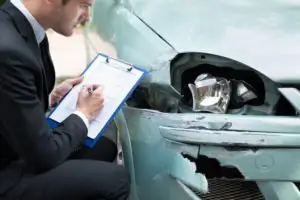
A crash report is a summary of important information about a car accident that has occurred. The document, also known as a Florida accident report, is essential for various legal and insurance processes and is synonymous with ‘crash report’. The document is usually filled out by the investigating law enforcement officers who responded to the 911 call and was first at the scene. The traffic crash report is then sent to the Florida Highway Safety and Motor Vehicles (FHSMV) in Florida.
A Florida Highway Patrol (FHP) accident report includes all the details from your accident including your Florida crash portal number.
Do I Need to File a Crash Report?
Florida Statute 316.066 states that you must stay at the scene if you were involved in a traffic crash, and call 911 to report it if:
- The crash resulted in death or injury.
- There was a hit and run involved with the crash.
- One of the drivers involved was under the influence at the time.
- The crash resulted in property damage worth over $500.
However, if you were only involved in a minor crash that didn’t require police assistance, then you can fill in an accident report online or post one by mail yourself instead. You can do this using the Florida Highway Patrol website.

What Do Crash Reports Include?
For any crash, you must also file a car crash report with the Department of Motor Vehicles (DMV) within ten days of the accident.
All Florida crash reports must include specific details that accurately explain the crash as well as the details of everyone involved. Crash reports are particularly useful in court, as they offer a reliable account of what occurred. The type of information that is often included in these reports is listed below:
- Location, date, and time of the accident.
- Personal information and contact details of everyone involved in the accident and any witnesses.
- Statements from the parties involved and witnesses.
- Description of any damage that was sustained to the vehicles involved during the accident.
- Opinions of the investigating officers.
 We’re here to serve you. Our phones are open 24 hours a day.
We’re here to serve you. Our phones are open 24 hours a day. How Can You Request a Crash Report in Florida?
Crash reports and crash records can all be accessed by the public in Florida, although they are not a part of public record until after 60 days after the crash. However, if you require a copy of the report before this time period is over, then you can complete an affidavit, which may allow you earlier access to it if you were one of the parties involved in the crash. You can fill in the affidavit online, at the Florida Highway Patrol website, or, if necessary, you can pick up a form to complete at any police department, sheriff’s office, or similar location.
The most common way of accessing a copy of any of the crash reports in Florida is by requesting it from the records division of the law enforcement agency that uploaded it to the Florida Department of Highway Safety and Motor Vehicles in Florida. The process to then get the crash report can vary depending on each agency. Some can offer instant downloads, while others send your request by mail or require you to appear in person.
Before having left the accident scene, the police officer would have likely handed you a receipt with the identification number of the police report. If this is the case for you then, you’ll be able to call the traffic division of the law enforcement agency, pay the administrative fee, which is usually around $10 to $15, and then obtain the copy.
If you don’t have the identification report, then you should still be able to obtain it if you can provide the agency with some of the following information:
- Date and time of the accident.
- Location of the accident.
- Your name and/or the name of at least one of the drivers involved.
It is, however, possible in some cases to acquire crash reports for free. You can ask the claims representative of your insurance company if they have requested the report. If they have, then you can ask the representative for a copy. The insurance company may not necessarily have the car accident report, but it is always a good idea to check first as it could save you time and money.
 We’re Florida’s top litigation team with over 75 years of combined experience
We’re Florida’s top litigation team with over 75 years of combined experience How to Submit a Crash Report in Florida
If you need to submit crash reports in Florida, you have several options depending on the severity of the accident and whether law enforcement was involved. For minor accidents that do not require police assistance, you can self-report the incident. Here are the steps to submit a crash report:
Online Submission
- Visit the FLHSMV Crash Portal: You can fill out and submit a crash report form online through the Florida Highway Safety and Motor Vehicles (FLHSMV) website.
- Provide Required Information: You’ll need to include details such as the date and time the accident occurred, the location, and the names of the parties involved. You will also need to describe the vehicles involved and any property damage.
- Affidavit for Early Access: If you need early access to a crash report, complete an affidavit online if you were one of the parties involved in the crash.
Mail Submission
- Download the Form: Download the crash report form from the FLHSMV website.
- Fill Out the Form: Provide all required information including details of the accident, personal information of the involved parties, and descriptions of the damage.
- Mail the Form: Send the completed form to the address provided on the FLHSMV website. Make sure to include any required fees.
In-Person Submission
- Visit a Local Law Enforcement Agency: You can pick up a crash report form from any police department, sheriff’s office, or similar location.
- Complete the Form: Fill out the form with all the necessary details about the accident.
- Submit the Form: Submit the completed form in person. You may be required to pay a fee, typically around $10 to $15.
 From the initial call to updates on your case status, we are here to get you answers.
From the initial call to updates on your case status, we are here to get you answers. Why a Crash Report is Important for Insurance Claims
A crash report is critical when filing an insurance claim for a car accident. Insurance companies use the details in the report to determine liability and the extent of damages. Here’s why having a crash report is essential:
Establishing Fault
- Objective Account: The report provides an unbiased, official account of the accident, including statements from the responding officer and involved parties.
- Detailed Information: It includes specific details such as the exact location, time, and circumstances of the accident, which help in determining who was at fault.
Supporting Your Claim
- Documentation: The crash report documents the damage to vehicles and any injuries sustained, which supports your insurance claim.
- Legal Requirement: For many insurance purposes, having an official crash report is a legal requirement to process claims.
Additional Benefits
- Insurance Information: The report may include insurance information of the involved parties, making it easier to file a claim.
- Claim Efficiency: Submitting a crash report can expedite the claim process, ensuring quicker compensation for repairs and medical expenses.
Seeking Legal Assistance After a Car Accident
After a car accident, seeking assistance from a legal professional can be crucial, especially if you need to pursue compensation. Here’s how a car accident lawyer can help:
Evaluating Your Case
- Initial Consultation: Many law firms offer a free consultation to assess your case and determine the best course of action.
- Legal Notices: A lawyer can help you understand any legal notices you receive and ensure you respond appropriately.
Navigating the Legal Process
- Filing Claims: A lawyer can assist you in filing insurance claims and ensuring all paperwork is correctly completed.
- Dealing with Insurance Companies: They can negotiate with insurance companies on your behalf to seek fair compensation for damages and injuries.
Representing You in Court
- Legal Representation: If your case goes to court, having an experienced car accident lawyer is invaluable. They will represent your interests and work to achieve a favorable outcome.
- Pursue Compensation: Lawyers can help you pursue compensation not only for physical damages but also for emotional distress and other non-economic damages.
Obtaining a Crash Report for Private Property Accidents
If a car accident occurs on private property, the process for obtaining a crash report might differ slightly. Here’s what you need to know:
Reporting the Accident
- Private Property Incidents: Accidents on private property may not always require a police report. However, it is still advisable to report the incident to local law enforcement.
- Police Involvement: If the responding officer deems it necessary, they will file a report which you can later request.
Accessing the Report
- Submit a Request: You can request a crash report from the local governmental agency that handled the report, such as the police department or sheriff’s office.
- Affidavit for Access: Complete an affidavit if you need the report before it becomes a public record after 60 days.
FAQ – How to Get a Crash Report in Florida
How can I obtain a car accident report from the Florida Highway Patrol?
To get a crash report from the Florida Highway Patrol, visit the Florida crash portal. You’ll need information about the parties involved and the date and location of the crash. Law enforcement agencies, like the Florida Highway Patrol, upload crash records to this portal.
Is it possible to access my accident report online?
Yes, you can access traffic crash reports online through the Florida crash portal. The portal allows you to search for and download your crash report form, usually with a convenience fee.
What are the requirements under Florida Statutes for obtaining a crash report?
Under Florida Statutes, a crash report is only available to parties involved in the crash, their legal representatives, or licensed insurance agents. This ensures privacy and protects sensitive information.
How do I self-report a car crash in Florida?
If a law enforcement officer didn’t attend the scene, you could self-report a minor crash. This can be done through the FLHSMV crash portal, where you can fill out and submit a crash report form online.
Can I request a crash report via mail or in person?
Yes, you can request a crash report by mail or in person from the law enforcement agency that responded to the accident. You’ll need to provide details of the crash, including the date and location, and possibly pay a fee.
What information is included in a Florida traffic crash report?
A traffic crash report includes details such as the vehicles involved, the circumstances of the crash, any injuries or property damage, and observations from the law enforcement officer completing the report.
Why is a crash report important for a personal injury claim?
A crash report is a crucial piece of evidence in a personal injury claim. It provides an official account of the incident, which can be vital in proving liability and the extent of injuries or property damage.
What services does the Department of Highway Safety and Motor Vehicles offer regarding crash data?
The Department of Highway Safety and Motor Vehicles provides access to crash data and records. They also run Victim Services Programs to help those affected by vehicular accidents.
How long after a car crash can I access the report?
Typically, crash reports become available a few days after the accident. However, it can vary based on the law enforcement agency’s processing time.
What should I do if I find errors in my crash report?
If you find inaccuracies in your crash report, contact the law enforcement agency that issued the report. An experienced car accident lawyer in Tampa, FL can also help in correcting errors or clarifying details in the report.
What if the crash involved a drunk driver?
If the crash involved a drunk driver, this would be noted in the police report. It’s crucial to seek legal counsel from a law firm experienced in such cases to navigate the complexities of your claim.
The Law Place
If you have been involved in a car crash, then you may deserve compensation. Contact The Law Place today, on (941) 444-4444, for free legal advice as well as help in obtaining crash reports.



